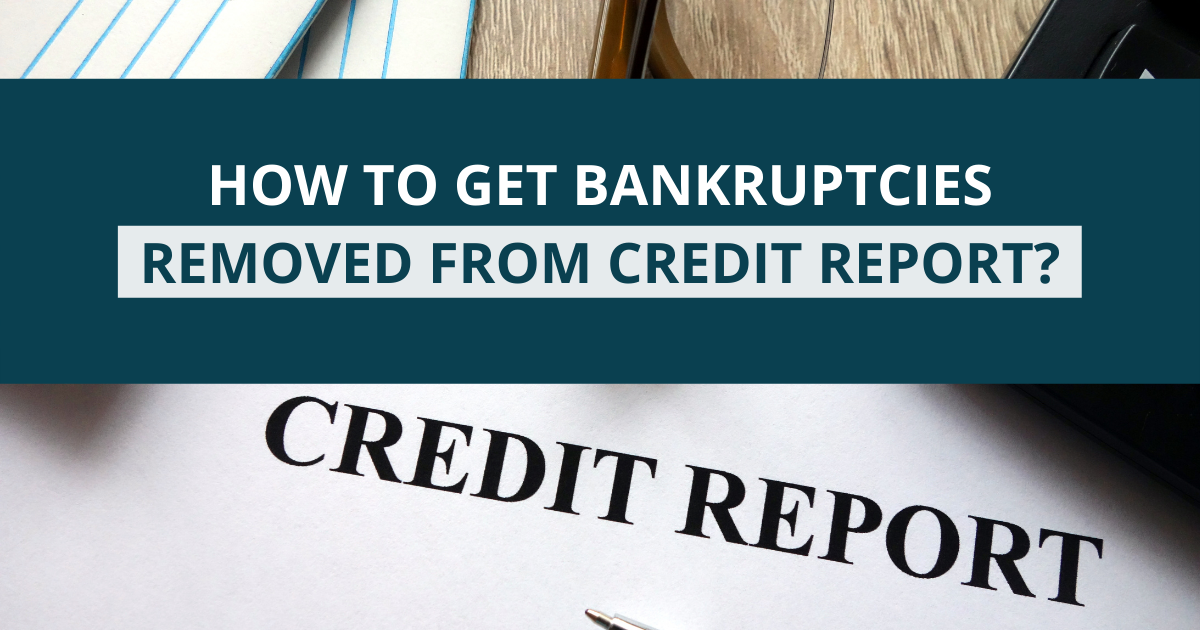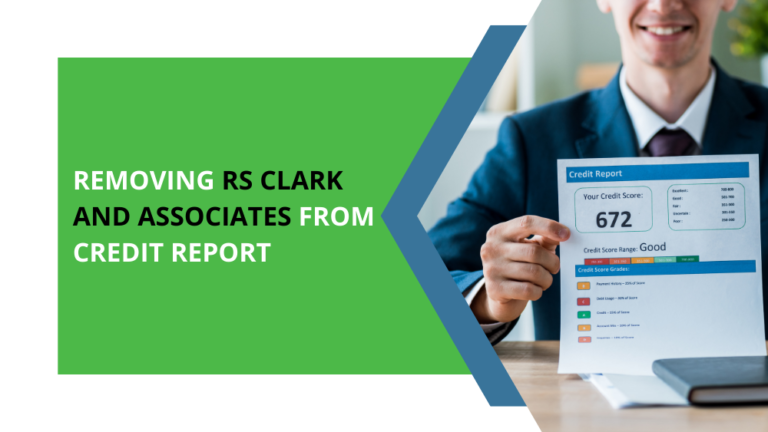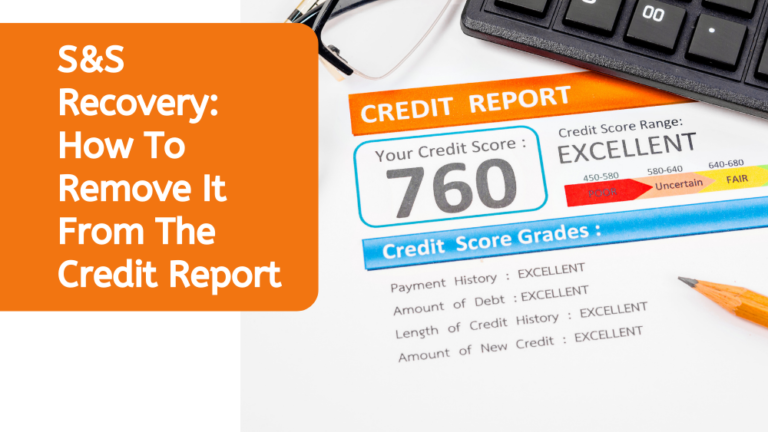How To Get Bankruptcies Removed From Credit Report?
Bankruptcies, liens and even civil judgments can have a negative effect on your credit score. In fact, they can lower it significantly. This also lowers your chances of getting approval for loans, car financing and credit cards. That is why people look to get these items off their report. This article will provide all the information on how to get bankruptcies removed from credit report. Let’s have a look at it.
Why Would You Want To Remove Bankruptcy From Your Credit Report?
There are several reasons you may want to remove a bankruptcy from your credit report. Some of the most common reasons include:
- To improve your credit score.
- In order to get credit cards or loans in the future.
- For purchasing a house in the future.
- To get a job in the future, as some companies check credit scores before offering employment.
- In order to rent an apartment in the future, as some landlords check credit scores before renting out apartments.
- You want to be able to get insurance in the future. Since some companies check credit scores before issuing insurance policies
Can you get a bankruptcy removed from your credit report?
While you can’t necessarily get bankruptcies removed from your credit report. There are steps you can take to legally have them erased after a certain period of time. There are two cases in which a bankruptcy would disappear from your credit report:
- Automatic removal after 7 years because it’s over the expiration date (more on this below).
- You formally requested for its removal. Therefore, subsequently creditor or reporting agency (also more details below) remove it on your request.
The first case only applies if you’ve “Adversary Proceedings.” If so, the bankruptcy will be struck from your credit report seven years to the filling day for Chapter 13 bankruptcy. If Adversary Proceedings were not initiated, then that filing will remain on your credit report for 10 years following its original date of submission. In either case, if you’re past the expiration date and have not seen any movement on that front with respect to your credit score or reports, then it’s worth contacting the creditor who originally reported it and letting them know.
How long do bankruptcies stay on your credit report?
Bankruptcies can stay on your credit report for a long time, depending on the type of bankruptcy you filed. A chapter 7 bankruptcy will stay on your credit report for 10 years (unless removed earlier). While a chapter 13 bankruptcy will only stay on your credit report for 7 years (unless removed earlier). Chapter 11 bankruptcies will remain on your credit report for 10 years as well.
As we saw in the last section, it’s possible to remove a bankruptcy from your credit report before these time periods are up. How? By disputing it with the following paperwork:
- Proof that you did not file for bankruptcy. This also include any bankruptcy discharged more than seven or ten years ago (depending upon the type of bankruptcy).
How To Get Bankruptcies Removed From Credit Report Early?
You might think that once bankruptcy is on your credit report, it’s there forever—but that’s not true! You can actually remove the bankruptcy from your credit report. Here are some steps for how to get bankruptcies removed from your credit report:
Manage Your Finance Responsibly:
Make sure that you’re managing your finances responsibly in the aftermath of the bankruptcy filing. That includes paying off any outstanding debts and ensuring that you are using credit responsible. This also includes making timely payments and not overextending yourself with new loans and such.
Request Credit Report From All Three Major Bureaus:
As you’re working through your financials, request a copy of your credit report from each of the three major credit reporting bureaus. The three major credit reporting bureaus are : Experian, Equifax, and TransUnion. Review each one carefully for inaccuracies and discrepancies; if you find mistakes, work with the bureau to correct them. If they refuse to make changes or additions that you think are correct, bring in legal representation to take on the case.
File a Dispute:
When you’re in a situation like this, it’s easy to let yourself feel like the odds are stacked against you—like things are out of your control.
But there’s one thing that you absolutely have control over: your credit report.
If there’s an error on it that is causing you to be denied for loans, those denials could cause major setbacks in the future. That’s why it’s so important to dispute the bankruptcy with the credit bureau(s) while making sure NOT to admit any fault.
It may take some time and effort, but if you’ve dealt with a bankruptcy that wasn’t yours, or a bankruptcy you’re no longer responsible for due to divorce or separation, fixing these issues on your credit report should be at the top of your priority list (even before starting to look for a house or building up your savings). Under the Fair Credit Reporting Act (FCRA), consumers have the right to request the removal of inaccurate information from their reports. This means that if you file for bankruptcy, but your credit report doesn’t reflect that it’s been discharged, you have the right to file a dispute and have that corrected.
While you might be all caught up in how to get bankruptcy off credit report early, the process can sometimes backfire too. So, it’s important to be smart about how you approach your dispute. It’s important not to admit any fault—you don’t want the creditor to have anything they can hang over your head.
Here are some tips for disputing your bankruptcy:
- Do not admit any fault
- Make sure you make a copy of everything you send out and keep it for your records.
- After you’ve filed the dispute, call up each credit bureau and ask them if they got your report and if they will be looking into it further. This is completely within your rights, and will put them on notice that you’re serious about getting this taken care of ASAP.
File for a verification:
If they deny your dispute, make them verify their information about your account is accurate. Here’s how:
1. Request the bureau to verify the information they are reporting about your account, including whether or not that data has been sold or resold on the dark web.
2. When requesting a verification from the bureau, send this request in writing, and keep a copy for yourself.
3. Ask for proof that the debt collector who sold them your information is legitimate. This includes asking for the debt collector’s license number in the state where you live, so you can look it up and ensure it’s valid.
4. Ask for verification of whether or not the debt collector has reported any activity by you on their website over the past year; if they have not, then you can use this to argue that they are not a legitimate debt collection agency since they haven’t been collecting any debts from you at all.
Send a letter to a court administrator:
If they claim they verified the information with the bankruptcy court, you can also write the court yourself, asking the court administrator about its procedure for verifying records with the credit bureaus. If there is no such procedure, or if it involves faxing reports containing your personal information without consent, this would violate your right to privacy under the Bankruptcy Code. This could be grounds for correcting your credit report in your favor.
Follow up with the credit bureaus:
Once you have a letter from the court stating that it hasn’t verified your bankruptcy with the credit bureaus, follow up with the credit bureaus. You may want to send them a copy of the letter and another copy of your bankruptcy form. Be sure to ask them to verify with the court again. The longer you wait to dispute this, the less likely it is that they will change their mind.
If you’ve received an official letter from the credit bureau, but it’s still not coming off your credit report, don’t panic. It may just be a matter of time before it comes off.
Reach out to Creditor:
Reach out to any creditors still reporting negative information about your accounts after bankruptcy filing. Many will be willing to remove the negative reporting if you contact them and explain the situation—however, you may need to provide documentation proving that you have already filed for bankruptcy in order to get them to comply.
Impact of Bankruptcy On Your Credit Score
If you’ve recently filed for bankruptcy, you may be wondering how it’s going to affect your credit score.
The short answer is that, yes, bankruptcy will most likely affect your credit score. Your credit score directly impacts the interest rate and charge you’ll pay on loans and other financial products that require a credit check. The better your credit score is, the lower interest rate you’ll pay (and therefore less money overall), and the more likely you’ll get approval for a new loan or line of credit.
But it’s not the end of the world. Here are a few ways that it can impact your score, and how you can work to minimize some of the damage.
Ways Bankruptcy Impact the Credit Score:
First of all, every kind of bankruptcy involves creating a public record. It means when anyone runs credit check on you, they can see your past bankruptcies. Most people who declare bankruptcy do so because they have a lot of debt. That means that anyone who looks at your credit report can see the debt you had before you filed for bankruptcy.
How much your score drops depends on what type of bankruptcy you declare. Chapter 13 drops your score by 100-200 points; Chapter 7 drops your score by 200-240 points.
The way to mitigate this damage is to start rebuilding your credit as soon as possible. The bankruptcy stay on your report for seven years from the filling date (or ten years from the date it was discharged). But even if you don’t declare bankruptcy, having unpaid debts on your credit history for seven or more years will also drag down your score significantly. In fact, those debts can stay on your report indefinitely.
Can credit repair remove bankruptcies?
The short answer is: not legally. But in our experience, they can help you get the next best thing.
This is a complicated question with a complicated answer, so bear with us. A bankruptcy will stay on your credit report for 7-10 years, depending on what type of bankruptcy it was. There’s nothing that can be done to change it. Not even credit repair services can help in some cases.
However, if you’ve declared bankruptcy and then subsequently completed a repayment plan or settlement, your credit score should reflect that. However, if it doesn’t, a credit repair service might be able to help. They’ll go through your credit report and find any errors. They can then dispute those errors with the relevant parties (including the bureaus themselves). If errors were made in calculating the impact of your repayment plan or settlement, this may result in an increase in your overall credit score.
Conclusion
How to get bankruptcies removed from credit report? The truth is that the process is not too difficult. The real problem is that the process can be tedious and tiresome. With the right information, however, you can make the process easier for yourself. Thus, you can clean your credit report before it’s too late.






